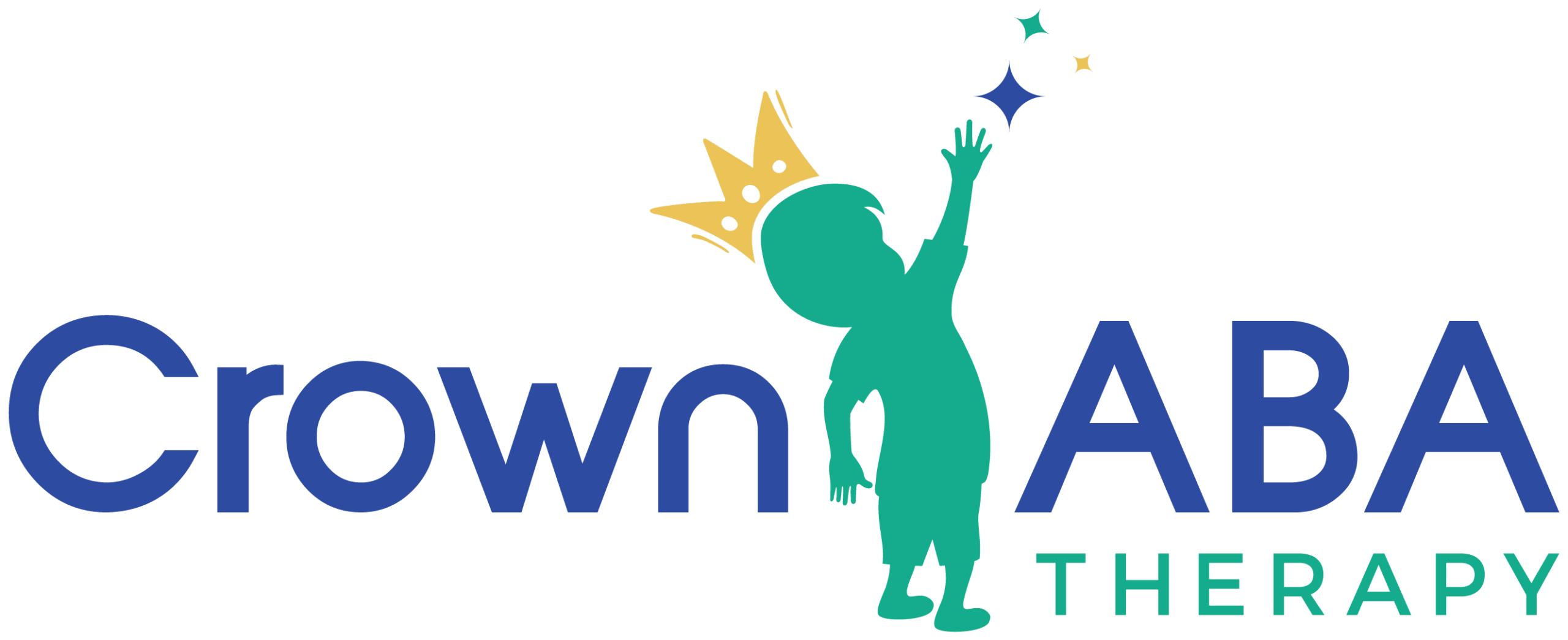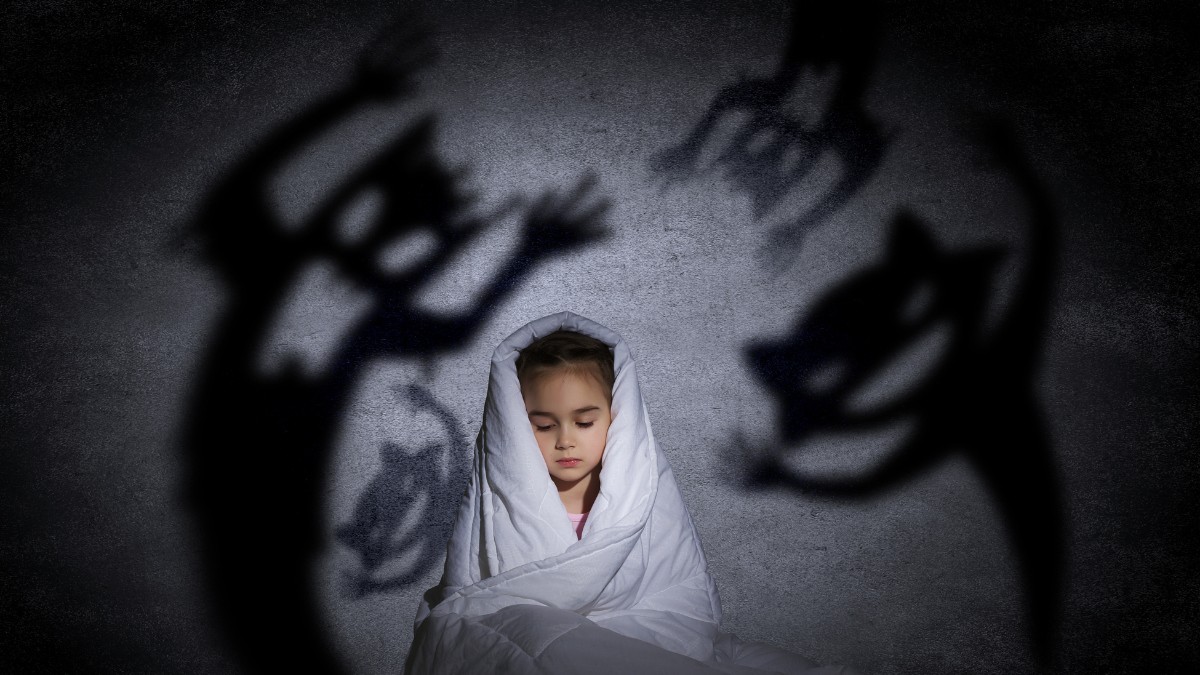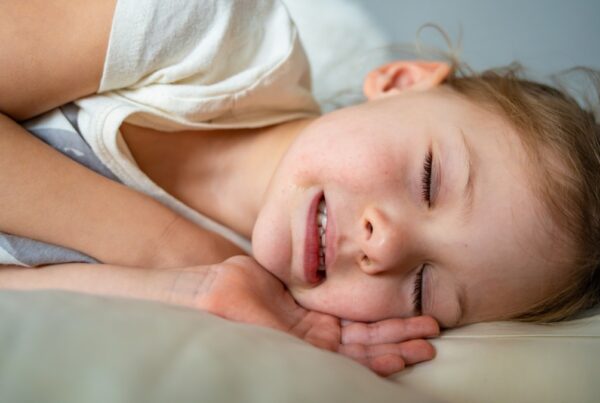Key Points:
- Research shows a notable link between night terrors and autism, especially among younger children with sensory and communication challenges.
- Sleep disturbances can affect behavior, emotional regulation, and learning in autistic children.
- Early intervention, including ABA therapy, can support both sleep improvement and behavioral development in children with autism.
You’re not imagining it—your autistic child may truly be more prone to those late-night episodes of screaming and fear. As a parent, you’ve probably asked yourself: Are night terrors linked to autism spectrum disorder (ASD)? And more importantly, how can you help your child sleep peacefully again?
Are Night Terrors Linked to Autism?
Yes, night terrors are linked to autism, particularly in children. Children on the autism spectrum are significantly more likely to experience night terrors, often due to sensory processing issues, heightened anxiety, and disrupted sleep architecture commonly associated with ASD.
What are Night Terrors?
Night terrors are not just bad dreams. They’re sudden episodes of intense fear during sleep, often paired with screaming, flailing, and confusion. Unlike nightmares, night terrors occur during deep non-REM (non-rapid eye movement) sleep and usually happen within the first few hours of falling asleep.
Before diving deeper into how night terrors relate to autism, it’s important to recognize the common signs:
- Sudden awakening with screams or cries
- Rapid breathing or heartbeat
- Sweating or flushed face
- Appearing awake but unresponsive
- Difficulty calming down afterward
- No memory of the episode the next day
For children with autism, night terrors can be more frequent and intense. Parents often describe their child sitting up, wide-eyed, heart racing, but completely unaware of their surroundings. These episodes can be especially distressing when the child can’t express what’s wrong or even recall the event afterward.
Why are Night Terrors More Common in Children with Autism?
Children with autism spectrum disorder often have unique neurological, sensory, and emotional profiles. These differences may contribute to an increased frequency of night terrors. But why exactly does this happen more often in autistic kids?
While every child is different, the following factors help explain why night terrors are linked to autism:
 The brain of a child with autism, essentially, processes sensory input differently, and that includes internal signals like tiredness, overstimulation, or even anxiety. Add to that the challenges in language and self-regulation, and you’ve got a perfect storm that may disrupt healthy sleep patterns. This creates a sleep environment ripe for night terrors.
The brain of a child with autism, essentially, processes sensory input differently, and that includes internal signals like tiredness, overstimulation, or even anxiety. Add to that the challenges in language and self-regulation, and you’ve got a perfect storm that may disrupt healthy sleep patterns. This creates a sleep environment ripe for night terrors.
How Do Night Terrors Affect Daily Life for Kids with Autism?
It’s not just about losing sleep. Night terrors can ripple into every corner of a child’s day. Sleep is essential for emotional regulation, learning, and behavior. When a child experiences frequent night terrors, parents often see an increase in irritability, focus issues, and even aggression.
When night terrors repeatedly interrupt sleep, the effects may show up in various ways:
- Increased meltdowns or sensory overwhelm
- Difficulty concentrating or participating in school
- Heightened anxiety or emotional reactivity
- Reduced coping skills during transitions
- Regressive behavior in some cases
For children on the spectrum—many of whom already face challenges in various areas—a lack of quality sleep due to night terrors can significantly lower their daily functioning. Parents may also feel helpless or exhausted, not knowing how to intervene or provide relief.
If you’re looking to explore another aspect of autism, be sure to check out our article, “Understanding Bruxism in Individuals with Autism.” Just like with night terrors, bruxism—teeth grinding—is a common concern for many families.
How Can Parents Tell If It’s a Night Terror or Something Else?
Nighttime disruptions can take many forms—nightmares, seizures, insomnia, or even sleep apnea. So, how can you tell if what your child is experiencing is truly a night terror?
To help parents identify night terrors accurately, here’s how they compare to other sleep disturbances:
- Nightmares: Occur during REM sleep, often remembered, and easier to wake from.
- Sleepwalking: May include calm wandering; night terrors often involve screaming or thrashing.
- Seizures: May involve repetitive, rhythmic movements; often occur randomly during the night.
- Sleep apnea: Involves gasping, snoring, and waking up multiple times due to breathing interruptions.
If you’re unsure, it’s always worth consulting a sleep specialist—especially if episodes are frequent or dangerous.
If you’re interested in learning more about how physical traits can be linked to autism, check out our article “Facial Features & Physical Autism Traits Explained.” It provides valuable insights into the facial and physical characteristics often seen in individuals with autism, helping you better understand the condition from a different perspective. As we explore the connections between night terrors and autism in this article, diving into these physical traits might offer even more clarity on how autism presents itself in various forms.
What Can Parents Do to Help?
If you’re navigating night terrors in your child with autism, the good news is: you’re not helpless. While there’s no “magic fix,” targeted strategies can reduce their frequency and severity. It starts with understanding what might be triggering the episodes.
Here are some practical tips to reduce night terrors in children with autism:
- Establish a Predictable Sleep Routine – Same time every night, calming activities, low lighting, and reduced screen exposure before bed.
- Create a Sensory-Friendly Sleep Space – Consider weighted blankets, blackout curtains, white noise machines, or preferred textures.
- Track and Minimize Stressors – Log when night terrors happen to find patterns tied to overstimulation or anxiety during the day.
- Introduce Calming Techniques – Gentle stretches, visual schedules, or even social stories can reduce bedtime anxiety.
- Limit Stimulants – Reduce sugar, caffeine, or stimulating play near bedtime.
- Work With a Professional – If night terrors persist, consult a pediatrician, sleep specialist, or behavior analyst.
Children on the spectrum, most of the time, thrive with structure, and that includes winding down. Also, pay attention to possible sensory triggers—are pajamas itchy? Is the room too bright? These small details can make a big difference.
Can ABA Therapy Help With Night Terrors?
Applied Behavior Analysis (ABA) therapy is widely recognized for helping children with autism build essential life skills. But what many don’t realize is that ABA principles can also be used to support better sleep habits—and in some cases, reduce the likelihood of night terrors.
ABA therapy can help in various ways that align with reducing night terrors:
- Building and reinforcing bedtime routines
- Teaching calming behaviors or replacement behaviors for anxiety
- Using data tracking to detect sleep triggers or regression trends
- Helping children communicate discomfort or needs more effectively
- Reducing behaviors that escalate into nighttime distress
ABA therapists can help identify what may be triggering sleep disturbances by conducting a functional assessment. They’ll analyze environmental, behavioral, and emotional patterns that contribute to disrupted sleep and create individualized strategies tailored to your child’s unique needs.
When Should You Seek Help?
If your child has night terrors more than once a week, or if they’re accompanied by safety concerns (like jumping out of bed), it’s time to seek support. The earlier you intervene, the better the outcomes—not just for sleep, but for your child’s overall well-being.
While occasional night terrors may resolve on their own, consistent or severe episodes in a child with autism often need a comprehensive, team-based approach. That’s where sleep experts, pediatricians, and behavior therapists like those trained in ABA can make a real difference.
ABA Therapy in Maryland: Find Support With Crown ABA
At Crown ABA, we understand how challenging it can be to parent a child with autism who’s also struggling with sleep disruptions. Night terrors don’t just affect your child—they affect the whole family.
Our dedicated ABA therapists work with families to build customized behavior plans that promote emotional regulation, reduce stress, and support healthy sleep patterns. Whether your child is facing bedtime battles, recurring night terrors, or general behavioral concerns, we can help develop a roadmap for calmer nights and more confident days.
Let’s work together to build healthy habits and brighter futures. Contact us today to learn how our ABA services in Maryland can support your child’s development—one step, one night, and one goal at a time!





